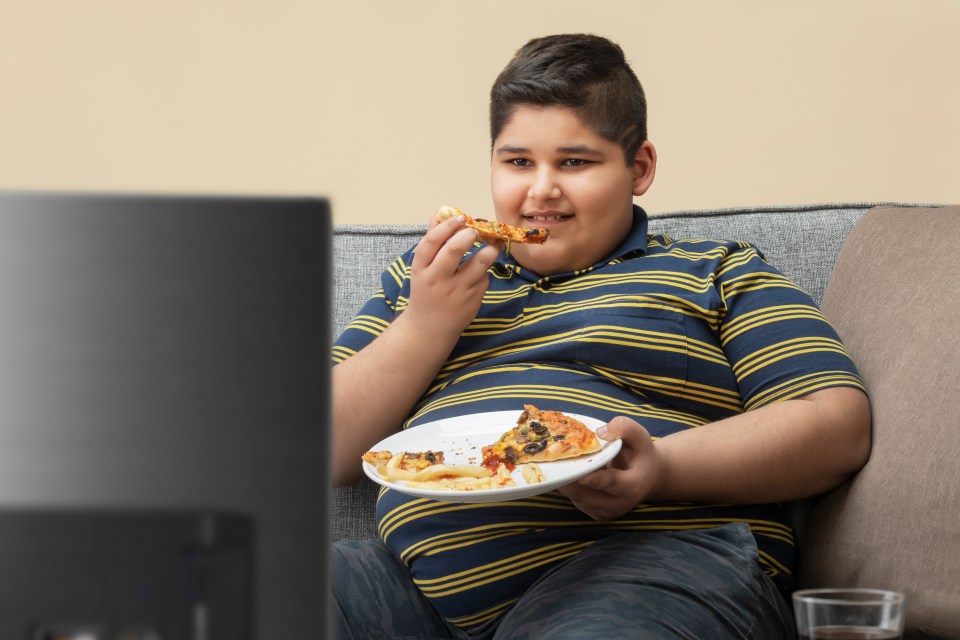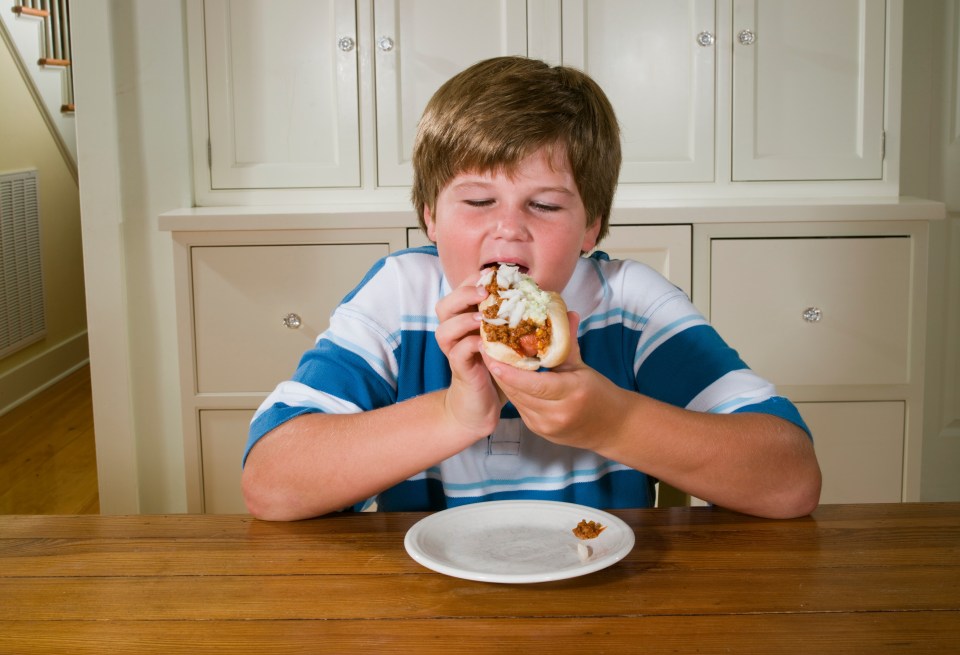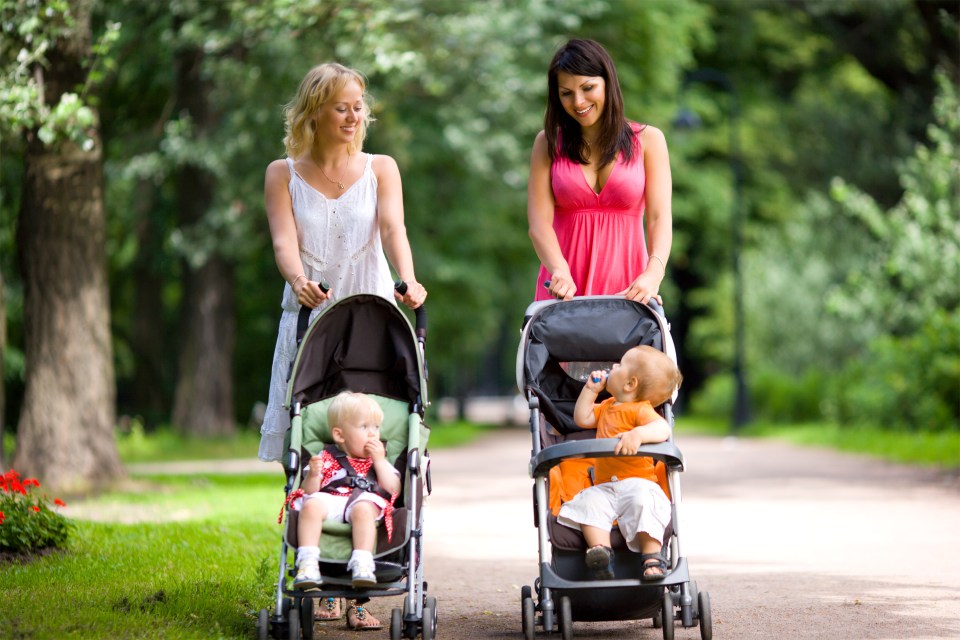WE all know too much sugar will make us fat – but when it comes to keeping our kids healthy, are parents as educated as they should be?
Seven common mistakes may be contributing to your child’s obesity without you even realising.
The UK’s obesity crisis is officially an epidemic as research reveals that obesity rates in children have nearly tripled in the past three decades.
Doctors are planning to test weight loss jabs similar to Ozempic on kids as young as six, according to the Daily Mail.
In England, two in five children leave primary school classified overweight, while overall 36.6% of kids are deemed to be an unhealthy weight, reports The Guardian.
Nutritionist and mum-of-one Jenna Hope reveals the seven surprising ways we’re making our children fat without even realising it – and what can be done to turn things around.
The author of How To Stay Healthy broke down each of the daily factors that play a role in childhood obesity.
JUICE IS A SECRET DANGER
Many parents believe fruit juice contains one of your essential five a day.
However, Jenna warns that the sugar content is so high, your child would be better off with a piece of actual fruit instead.
“I completely understand why parents might take the cereal and fruit juice route for breakfast, society tells us that’s the norm,” she explains.
“But actually the amount of sugar in juice in particular is huge – it’s not great for children’s teeth and it’s not great for their weight either.
“Kids don’t really need to be drinking anything other than water, it’s a simple swap.
“I understand juice tastes nice, it’s sweet, so there’s every chance a child could demand it and the parents just aren’t aware of the pitfalls.
“But the reality is, the kids would be better off with an actual apple or orange instead.”
While many parents choose cordial for their little ones, Jenna instead advises: “If your child refuses to drink plain water you can squeeze half an orange into their drink as a healthier alternative.”
SCREEN TIME IS FATTENING
Some parents might not understand the correlation between screen time and obesity and it isn’t just being sedentary that piles on weight.
“More and more children are eating with screens in front of them, and that can have a negative effect on their appetite regulation,” Jenna explains.
Seven ways parents contribute to childhood obesity
Nutritionist Jenna Hope broke down the common ways parents contribute to their children’s weight issues without even realising.
- Juice: Instead of starting your child’s day off with the sugary drink, give them a glass of water instead.
- Screen time: Disengaging the brain while eating will likely cause your child to eat more.
- Snacks as discipline: Children need to learn how to entertain themselves without snacking or screen time.
- Food as a reward: Giving your child their favourite treat in response to good behaviour can cause them to have an unhealthy relationship with food as they grow up.
- Dessert: Should not be given after every meal as it encourages your children to crave sugar after eating.
- Pushchairs and cars: Over reliance on these forms of transport teach us to be lazy.
“When you put a screen in front of a child, the brain is focusing on the screen and not on the eating.
“As the brain is so disengaged with the food, they’re more likely to eat more.
“It can actually also affect the way in which we absorb our nutrients.
“Our stomach’s not producing the right digestive enzymes to break down the food because the brain hasn’t engaged properly.
“That means we get partially digested food entering the gut, which could affect their energy levels.
“You might find that when your kids are low on energy, they crave more sugar.”
Jenna described the process as “a vicious cycle” and advised parents to avoid it by keeping “screens and meal times separate.”
USING SNACKS TO DISCIPLINE
One habit Jenna sees often is parents giving their children snacks and treats to keep them occupied.
But she argues it’s bad practice and detrimental to their weight in the long term.
“Parenting is hard and so many parents are busy all the time, they’re constantly multitasking, and if they can find a way to keep their kids preoccupied, they’ll do it,” she explains.
“A packet of chocolate buttons can buy you a surprising amount of time but it’s so bad for the child’s health.
Enjoy a moment of calm together and it’ll soon be something your child will look forward to.
Jenna Hope
“Kids need to learn to entertain themselves without the need for snacks or screetime.
“We need to teach them to learn to play in their own little environment or find time to be distracted together.”
She advises any parents feeling overwhelmed to take their child aside and “have a glass of water with them.”
“Enjoy a moment of calm together and it’ll soon be something your child will look forward to,” Jenna says.
FOOD GIVEN AS A REWARD
It’s something most parents are guilty of – using treats as a reward in order to get the kids to do what you want them to do.
But by doing so, Jenna says you’re setting them up for lifelong issues surrounding food.
“It’s very normal for mums and dads to say ‘If you don’t do this, you can’t have your dessert,” she explains.
According to Jenna, this is a practice that needs to be cut out completely.
Using food as a reward can really contribute to a poor relationship with food later on in life.
Jenna Hope
“Using food as a reward can really contribute to a poor relationship with food later on in life, where children can start to use that to manage their emotions,” she says.
Alternatively, Jenna explains that people may also “start to use food to reward themselves.”
Research published in the National Library of Medicine suggests obese children are five times more likely to stay obese into adulthood.
According to Jenna, this can increase the risk of type 2 diabetes, cardiovascular disease, and joint health issues.
But she understands that in today’s society, it’s easier said than done.
“It’s hard because we all do our best as parents and for most this type of reward system is an easy go-to,” she says.
“But I’d suggest using stickers, or a reward jar where you collect little tokens over time in exchange for a trip to the park.
“It’s not easy with our busy lives, but in the long run it’ll work wonders.”
DESSERT AFTER EVERY MEAL
A pudding after dinner is a given in most people’s homes, but Jenna points out that this sort of routine is merely encouraging children’s weight gain.
Like adults, kids only need a certain amount of calories per day, with four-year-olds needing approximately 1,300 and 10-year-olds around the 2,000 mark, according to the British Nutrition Foundation.
So it’s important not to indulge your little one’s sweet tooth too much.
“I think trying not to make dessert an automatic staple every night, after every dinner, would go a long way to helping manage children’s weight,” says Jenna.
“Is dessert really necessary? Kids will grow up thinking they need something sweet after every meal, which of course they don’t.
She suggests giving your child a larger portion of “the healthy stuff” if you think they might still be hungry after dinner,
“It’s important that children learn to be satisfied with just one course, or it will lead to swift weight gain,” Jenna explains.
RELYING ON PUSHCHAIRS AND CARS
According to Jenna, excessive use of pushchairs and cars in order to travel short distances can also lead to unnecessary weight gain
“The reliance on buggies and cars is definitely a factor in children getting less exercise,” she says.
“Many toddlers who could be walking places should be given the opportunity to use their legs more, within reason.”
She added that people are also often too quick to ” jump in cars to travel distances they could be walking.”
“Often, I see families spend their weekends getting in a car to travel to a restaurant where they’ll eat fast food while watching a tablet,” Jenna says.
“Really, we want families to be out, having fun, going to the park, going on family walks, and encouraging your children to either walk or, if you can afford it, ride a bike.”



















